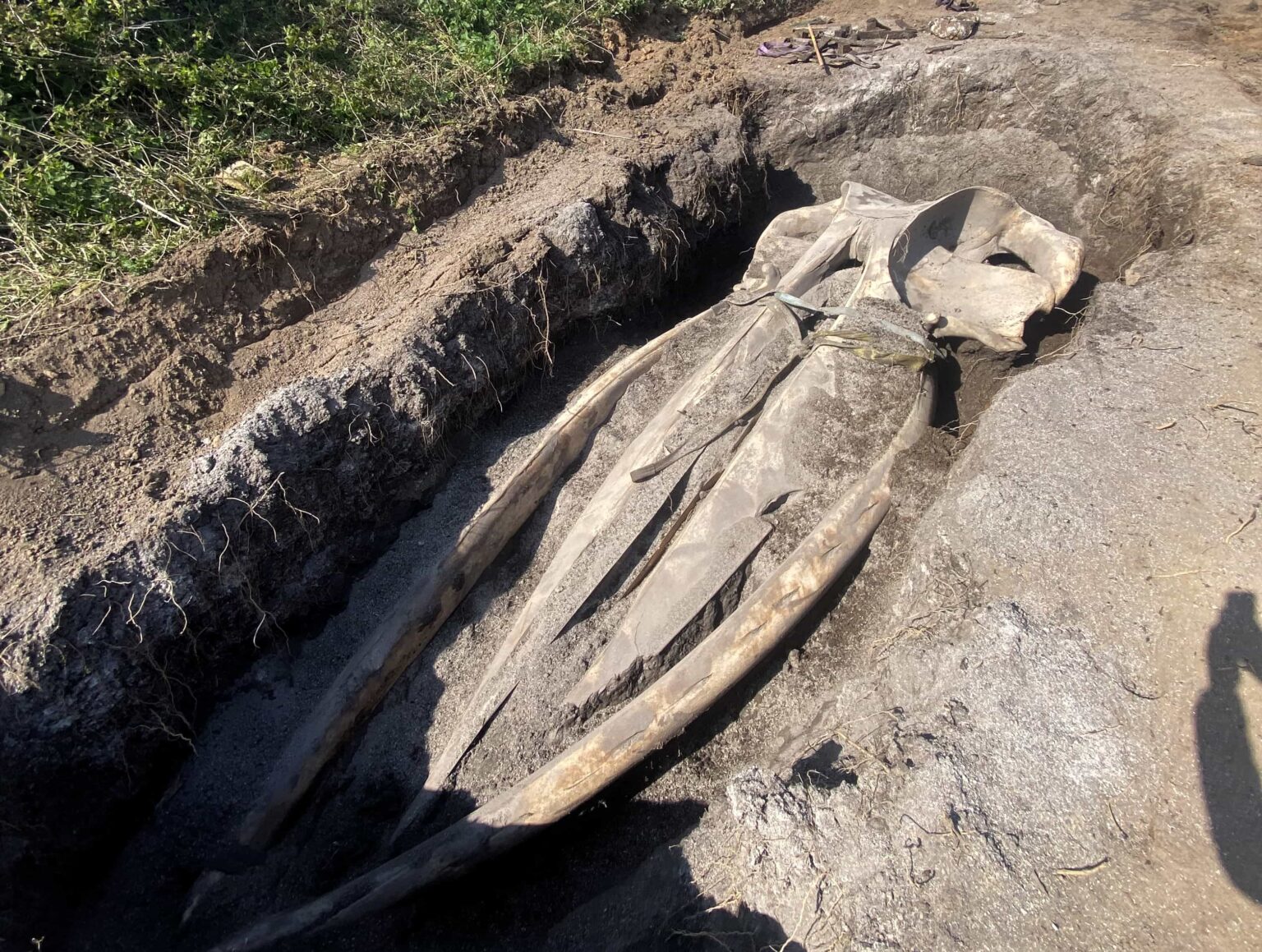Boffins have dug up the enormous head of a whale five years after burying it for science.
Robbie McDonald buried the skull to prepare the bones for study.
It was from a 65-foot-long fin whale that died in 2020 after stranding on a beach.
READ MORE: Road-legal WWII armoured vehicle with huge gun turret goes on sale for £65,000
The species is the second largest animal on Earth after the blue whale.
Usually whale carcasses are disposed of by the landowner but scientists, who hold a licence from Natural England, are allowed to take animal bones for scientific and educational purposes if permission is granted.
The academics kept the whale’s head after it died at Parbean Cove at the mouth of the Helford river, Cornwall.
It was then buried on University of Exeter land in Falmouth.
Organisms in the soil then stripped it clean.
And it has now been excavated in a 10-hour mission, as reported by What’s The Jam.
Prof McDonald of Exeter University was delighted with the results.
“It’s fantastic we really didn’t know how it was going to go not having seen it for five years,” he said.
“There were a few touch and go moments where just the sheer weight of it can fracture the skull.
“Hopefully we can learn something about the marine environment that it came from but ultimately it will be a nice thing for people of Cornwall to remember this animal.
“There’s a few nicks and a few dings but nothing we can’t handle, so I’m delighted and it’s come out really clean too.”
Dave Hatton, who runs a plant hire firm, helped bury and then dig up the whale.
He said: “It was a fair old weight, much harder to get it out of the ground than putting it in.
“I’ve been asked to help dispose of whales before with my digger but doing this is something a bit different isn’t it?”
Discussions are now underway as to the future of the whale skull, with the possibility that a permanent installation will be created on Exeter University’s Penryn campus.
Professor Brendan Godley, Director of the Graduate School of Environment and Sustainability, added: “This story reflects so much of the work the university conducts in relation to our environment.
“It speaks to our education and research across marine science, from the health of our ocean to the way ecosystems are adapting or otherwise to these rapid changes.
“It also reflects our deepening engagement with the world around us, mediated through humanities and social sciences, where our scholars play such a valued role in communicating these issues to the public – capturing imaginations.”
READ MORE: Foodie tries London’s most expensive burger with CAVIAR garnish and whopping £350 price tag
